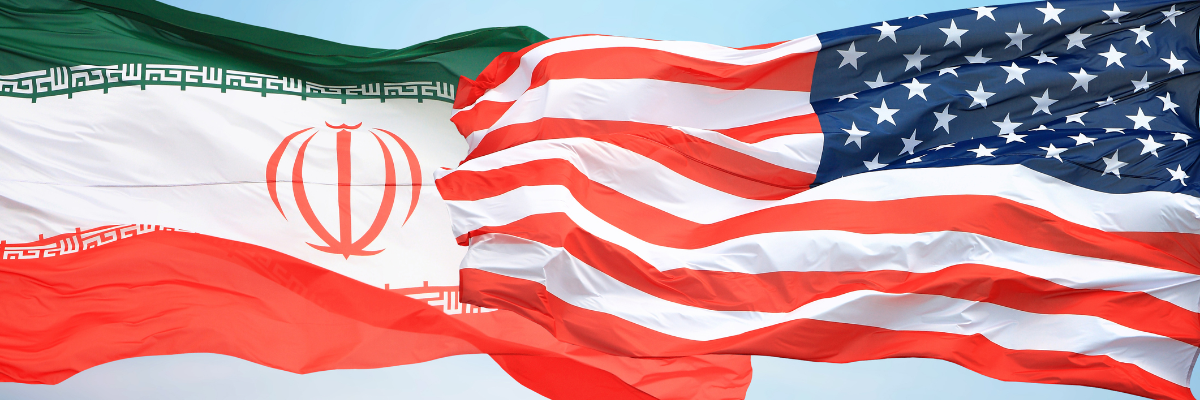The year, indeed the decade, has begun in violence. President Trump’s decision to assassinate Iran’s most revered (and feared) general has risked turning what is already the world’s most turbulent and dangerous region into the scene of a major war. Iran has already retaliated. Whether further escalation can be avoided remains to be seen. Mr Trump’s defenders say force was and is necessary to counter Iran’s ambitions and what they see as its destabilising behaviour. His critics say his actions are strategically foolish and self-defeating and that diplomatic engagement is the only way to resolve tensions. Who’s right? And what should Britain’s position be?
America’s problems with Iran (and, more generally, the West’s) go back decades. But Iranians would say that their problems with the West, and with America in particular, go back even further. In their eyes, the West’s interest in their country, which was once the great Persian Empire, has been simply over the last century or so to turn it into a client state for the purpose of controlling its oil wealth. So, in the 1950s, the US and Britain helped overthrow a popular government that had sought to take control of its own resources, and then kept in power a corrupt but compliant regime ruled over by the unelected Shah. When that regime was overthrown by the revolution that brought the ayatollahs of Shia Islam to power in 1979, the West then backed its adversary, Iraq (the West was not always so hostile to Saddam Hussein), in the eight-year war that almost immediately followed and which Iran lost. The West too supported its arch-enemy in the Islamic world, Saudi Arabia, and backed Israel in every dispute with Iran. The ‘Great Satan’ was at the centre of every conspiracy against it and has sought to destroy the Islamic republic by imposing severe economic sanctions against it from the very moment of its inception.
That might be an Iranian version of recent history. America’s would be rather different. Its historic involvement in the exploitation of Iran’s oil, it might say, helped what had become a backward nation to realise its potential and become a modern country with a highly educated workforce. Iran’s thanks, taking fifty-two American diplomats as hostage for over a year after the 1979 revolution, was an outrage by all international norms. Iran’s fundamental opposition to the very existence of Israel and its avowed intent to see the country destroyed proved it to be beyond the pale. And its development of proxy clients around the region – in Lebanon, Gaza, Iraq, Yemen and most recently Syria – in order to confront American interests by remote control, illustrated that Iran was a foe that could not be ignored.
Since 1979 all US administrations have imposed economic sanctions on Iran in an attempt to get it to change its ways. But it was the growing conviction that Iran was intent on gaining nuclear weapons that intensified the sense of urgency in the West that something need to be done about Iran. Although the Iranian regime insisted it had no such intention, claiming its growing nuclear capabilities were solely for use in civil energy, a dispassionate look at Iran’s strategic position persuaded many in the West – and not all of them hostile to Iran – that these denials could not be believed. Iran’s own view of itself was as a country surrounded by enemies one of which at least (Israel) already had a nuclear weapon arsenal. So surely Iran would want one too. And if it succeeded, others in this most dangerous part of the world would want theirs and the region would become a nuclear tinderbox.
President Obama’s response was to negotiate. In 2015, his administration along with European allies, including Britain, signed a deal with Iran in which, in return for the West’s easing of sanctions, Iran’s nuclear programme would be substantially cut back and the country would open itself up to international inspectors to make sure it wasn’t reneging on the deal in secret.
But President Trump thought the deal was a dud: one of the worst in history. His main objection was that it only postponed Iran’s ability to become a nuclear power rather than stop it altogether. He pulled America out of the deal, re-imposed sanctions and left the Iranians and the Europeans (still including Britain) to salvage what they could of it, threatening them all if they succeeded.
Iran’s response has been to step up its interference by proxy in the affairs of other countries in the region and always against the declared interests of the United States. The brains behind this strategy, first set going over twenty years ago, was General Qasem Soleimani, the head of the elite Quds force within Iran’s hard-line Revolutionary Guards. It was he who was the puppet-master of such anti-US forces as Hezbollah in Lebanon, Hamas in Gaza, Houthi rebels in Yemen and Shia militias in Iraq.
His role had been recognised for years and different American presidents had pondered killing him but had ended up refraining from doing so because of apprehension about the consequences. Over the New Year, however, local Shia militias in Iraq launched rocket attacks on US bases in Iraq, killing American personnel and President Trump was faced with the same choice. He chose differently. He authorised a drone attack on General Soleimani’s convey leaving Baghdad airport, killing not only the Iranian general but a senior Iraqi general too.
Was it the right thing to do? President Trump’s supporters are certain it was. They argue that General Soleimani was already responsible for the deaths of hundreds of Americans caught in action initiated by Iranian proxies controlled by him, a claim that is not disputed. They add that he was in the process of organising another outrage that would have killed American forces in the region (though, as yet, they have not published the intelligence behind this claim). In President Trump’s own phrase, Soleimani “was a monster. And he’s no longer a monster. He’s dead”.
But his defenders go further arguing that there is no serious risk of war as a result of the president’s decision. They say that of course retaliation was expected but the fact that that retaliation, in the form of more than a dozen ballistic missile attacks on two US bases in Iraq on Tuesday night, was relatively limited and seemed to be calculated to minimise the risk to American troops (none has been reported killed) shows that the Iranians are not foolish enough to take on the might of the USA in a full-blown war. Indeed the Iranian foreign minister, Javad Zarif, said of the retaliatory action that Iran had taken ‘and concluded’ its response. As President Trump subsequently tweeted ‘All is Well’. Or, as one of his predecessors might have put it, ‘Mission Accomplished’.
But this is not how his critics see it. They accuse the president of having taken action without thinking through the possible consequences and that these could spiral out of control. Mr Zarif may have said that Iran had ‘concluded’ its response but the far more important spiritual leader of Iran, Ayatollah Khamenei, repeated the country’s determination to drive America ‘out of the region’. Furthermore, say the critics, the president’s action can already be seen to be self-defeating. In the first place, it has unified Iran behind the ‘martyrdom’ of its revered general at a time when the regime was facing massive unrest among the population as a result of intensifying economic hardship, partly as a result of the effect of sanctions. That unrest might even have threatened the survival of the regime but the assassination has served to strengthen the power of the hardliners, exacerbating the threat the regime poses to American interests in the region.
Secondly, the assassination has weakened American influence in Iraq and increased Iran’s influence. On Sunday, the Iraqi parliament, with the support of the Prime Minister, Adel Abdul-Mahdi, voted to demand that all foreign forces leave the country. Although this is not binding, a decision to ask the five thousand American troops (and four hundred British troops) to leave would almost certainly have to be respected. The result would be a triumph for Isis, the Sunni terrorist group those troops are there to counter. It would leave Iran and Russia as the dominant foreign influences in Iraq and the wider region.
Between these two views of the wisdom or otherwise of Mr Trump’s action, Britain has sought to take a middle position, though one tending more to the view of the critics. Both the Prime Minister and the Foreign Secretary have expressed ‘understanding’ for why Mr Trump did what he did without thoroughly endorsing it. And Mr Johnson told the Commons on Wednesday morning that Britain’s aim was to ‘work for de-escalation’ and to do so by co-operation with European allies. Since President Trump’s secretary of State, Mike Pompeo, had already complained that European governments, including Britain, had not been ‘helpful enough’ after the assassination, the underlying message was clear.
Where do we go now? The strategy of negotiating with Iran looks, at least for the moment, as far away as ever. Mr Trump’s more fervent supporters would no doubt say that that was always an illusion and that his strategy now ought to be one of bringing about regime change in Iran. Although the President has said this is not his aim, advocates argue that it can work. Military and economic pressure was, in the end, what brought down the Soviet Union, they say, and getting rid of the regime in Teheran would be a lot easier. However, many in Washington, never mind Europe, would be horrified by the idea. They might ask: did regime change in Iraq or in Libya bring about a calmer world?
So was President Trump’s decision to assassinate General Soleimani the right one or a dangerous gamble? Is Britain’s highly qualified support the right reaction? And, at the start of this new decade, does the world seem to you a safer place or rather the opposite?
Let us know your views.











